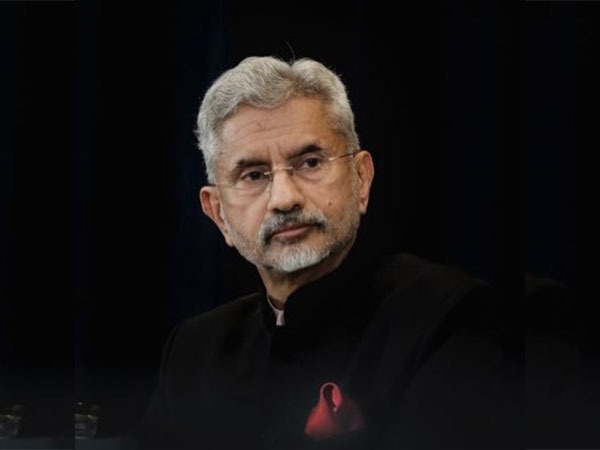Munich [Germany] : External Affairs Minister S Jaishankar reaffirmed India’s stance on buying Russian oil despite sanctions on Moscow amid military conflict with Ukraine. He said that India and Russia have always shared “stable and friendly ties” and Moscow has never hurt the interests of New Delhi.
In an interview with the German economic daily, Handelsblatt during his visit to Germany for the Munich Security Conference, Jaishankar stated that Europe should understand that India cannot have a view of Russia that is identical to the European one.
On being asked about India purchasing Russian oil, Jaishankar said, “Everyone conducts a relationship based on their past experiences. If I look at the history of India post-independence, Russia has never hurt our interests.”
“The relations of powers like Europe, the US, China or Japan with Russia, they have all seen ups and downs. We have had a stable and always very friendly relationship with Russia. And our relationship with Russia today is based on this experience. For others, things were different, and conflicts may have shaped the relationship. We, on the other hand, had a politically and militarily much more difficult relationship with China, for example,” he added.
Asked whether India would have liked support from Europe during border conflict with China in 2020, he said, “Just as I do not expect Europe to have a view of China that is identical to mine, Europe should understand that I cannot have a view of Russia that is identical to the European one. Let us accept that there are natural differences in relationships.”
He said that India and Europe have talked about their stance and have not emphasised their differences. He said that Europe shifted a large part of its energy procurement to Middle East after the war erupted between Russia and Ukraine, which was until then the main supplier of energy for India and other nations.
Asked whether differences in ties with regards to Russia have impacted India-Europe relations, EAM said, “Both sides have communicated their positions clearly and have not emphasized their differences. But yes, there are differences. You mentioned the energy issue. When the fighting started in Ukraine, Europe shifted a large part of its energy procurement to the Middle East – until then the main supplier for India and other countries.
“What should we have done? In many cases, our Middle East suppliers gave priority to Europe because Europe paid higher prices. Either we would have had no energy because everything would have gone to them. Or we would have ended up paying a lot more because you were paying more. And in a certain way, we stabilized the energy market that way,” he added.
Speaking to Handelsblatt, Jaishankar again reiterated the call for reforms in the United Nations. He stated that the nations blocking reform in the UN are in denial about changes taking place in recent decades. He said that international order collapsed during the COVID-19 pandemic.
Asked how the current blockade could be resolved, he responded, “The countries blocking reform are in denial about the changes that have taken place in recent decades. The real issue is: how do we refresh the international order, how do we renovate and reform it and its institutions? There is no point in saying to international institutions: “Do your job better” if they are not capable of doing so. Look at how the international order simply collapsed during a historically large problem like COVID. Every country acted in its best interest.”
Jaishankar noted that there was some collaboration between nations during the COVID-19 pandemic. However, he added that the majority of nations did not help each other. He highlighted the need to change the international order. He stated that climate protection needs to be taken much more seriously.
He said, “It was good, there was some collaboration, but most countries didn’t help each other. If we are leaving out large parts of the world, we urgently need to change the international order. Even today, many, many countries are angry that they received vaccines so late that they were subject to entry restrictions, that their economic development was seriously undermined.”
Recently, Jaishankar travelled to Germany to attend the Munich Security Conference. Speaking at a panel discussion alongside US Secretary of State Antony Blinken and German Foreign Minister Annalena Baerbock, Jaishankar said it was hard to have a unidimensional relationship in the contemporary world.
He said, “Is that a problem, why should that be a problem? if I am smart enough to have multiple options, you should be admiring me. Is that a problem for others? I don’t think so, suddenly in this case. We try to explain what are the different pulls and pressures that countries have. it’s very hard to have that unidimensional relationship,” Jaishankar said.
Jaishankar noted that different nations have different histories and cited the example of ties between US and Germany.
Jaishankar said, “Different countries and different relationships have different histories. If I want to look at the US and Germany, it is rooted. There is an alliance, nature to it. There is a certain history on which that relationship is grounded. In our case it’s very different, so I don’t want you to even inadvertently give the impression that we are purely unsentimentally transactional.”
“We are not, we get along with people, we believe in things, we share things, and we agree on some things but there are time when you are located in different places have different levels of development, and different experiences all of that gets into that,” he added.


